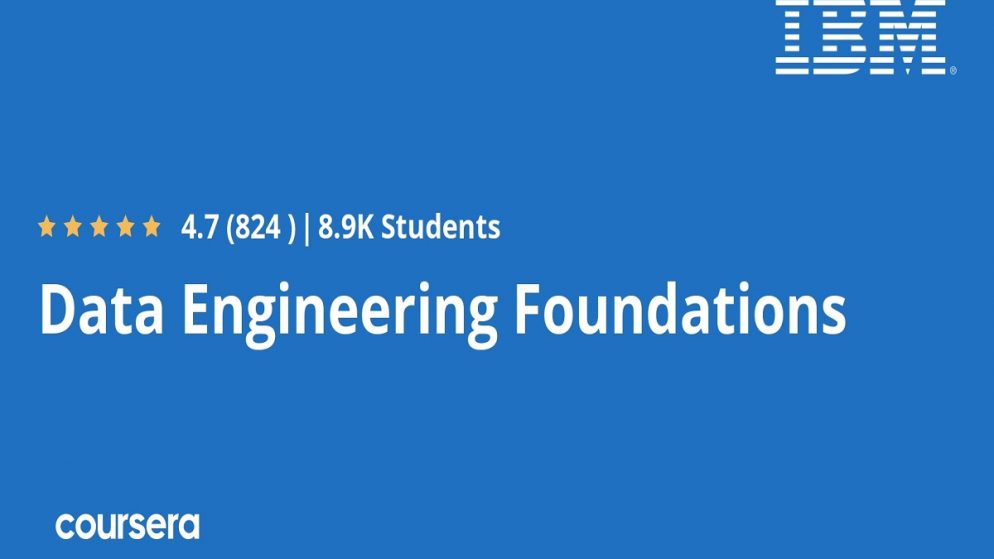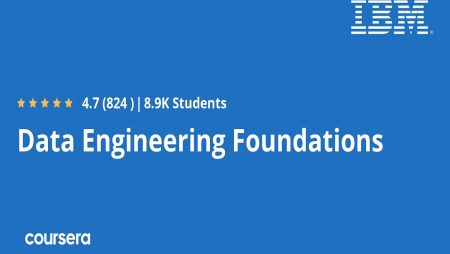

Data engineering is one of the most important and rapidly growing skills in the technology industry. With big data becoming a reality in every business, data engineering is essential for managing and manipulating large sets of data. If you want to gain data engineering skills in Coursera, read on for tips on how to do just that. In this article, we will outline the best Coursera courses for data engineering, as well as provide tips on how to get started with data engineering. We hope you find this information helpful!
What is Data Engineering?

Image Source: Link
Data engineerng is a field that deals with the processing and presentation of data. It involves creating tools and processes to make it easier for teams to obtain, analyze, and use data. In order to become a Data Engineer, you will need to be familiar with different programming languages, databases, and software development tools. Coursera offers several courses that can help you gain the skills you need to enter this field.
The History of Data Engineering

Image Source: Link
The history of data engineering dates back to the late 1800s when statisticians and mathematicians began developing methods for manipulating and analyzing large data sets. Over time, the field has evolved to encompass a wide range of techniques and technologies used to manage and process data.
Today, data engineering is an essential part of many companies’ technology infrastructure. It enables organizations to collect, analyze, and use data effectively in order to make informed decisions. There are a variety of courses available on Coursera that cover aspects of data engineering, such as how to build big data solutions, understand various types of data storage systems, and use machine learning algorithms. By taking these courses, you can develop skills that will help you become a successful data engineer in today’s economy.
What are the Different Types of Data Engineering Projects?
![What Does a Big Data Engineer Do? [Role, Salary & Skills]](https://dpbnri2zg3lc2.cloudfront.net/en/wp-content/uploads/2021/05/what_does_a_big_data_engineer_actually_do.jpg)
Image Source: Link
There are a variety of ways to gain data engineering skills in Coursera. Below, we outline some of the most popular courses and resources.
Data Engineering Bootcamp
One of the most popular ways to gain data engineering skills is through a bootcamp. A bootcamp typically lasts around 10 weeks and teaches you how to design, build, and manage large-scale data pipelines. Bootcamps often partner with companies like Google or Uber, so you can learn from real-world experience.
Data Engineering MOOCs
Another popular way to learn data engineering is through online courses. These courses typically last around 12 weeks and teach you the basics of data engineering such as designing data pipelines, managing big datasets, and troubleshooting complex problems. Some notable online courses include:
- Data Engineering for Dummies (for beginners)
- Big Data Analytics with Apache Spark (for experts)
- Introduction to Data Science using R (for experts)
- Data Science from Scratch (for intermediates)
- Data Engineering at Scale with Hadoop HDFS and MapReduce (for experts)
How to Start a Data Engineering Project in Coursera?

Image Source: Link
There are many ways to start a data engineering project on Coursera.
The first step is to find a course that fits your interests and goals. For example, some courses focus on big data storage or querying. Once you have found a course that looks interesting, it’s time to figure out what tools you need to complete the project.
Coursera offers several toolsets for data engineering projects, including Hadoop, Spark, and Azure Data Sciences Platform. If you don’t have experience using these tools, be sure to check out the resources offered in the course before starting your project.
Once you’ve gathered all of the necessary materials, it’s time to get started! Here are three tips for getting started with data engineering on Coursera:
1) Use interactive labs and exercises to get started quickly. These drills help you learn how to use the tools and datasets provided in the courses.
2) Try using real-world datasets in your projects. This will give you a better understanding of how data can be used in business applications.
3) Get help from classmates and tutors if needed. They can provide guidance and feedback during your projects.
Tips for Successful Course Completion

Image Source: Link
In order to complete a course in data engineering on Coursera, it is important to have a firm understanding of the basics of data science. This article provides tips for success in completing data engineering courses on the platform.
First and foremost, be Patient. Data engineering can be challenging, but with patience and practice, you will be able to successfully complete these courses.
Another key factor for success is to utilize resources that are available on Coursera. For example, there are often group discussions or coding challenges that can help you better understand the material being covered in the class. Additionally, use the forums to ask questions and get feedback from other students.
Finally, take advantage of online resources if they are available in your course. These can include books, online articles, and tutorials found via Google search or YouTube channels. By utilizing these resources carefully and patiently, you will be able to gain the skills necessary for successful completion of data engineering courses on Coursera.



